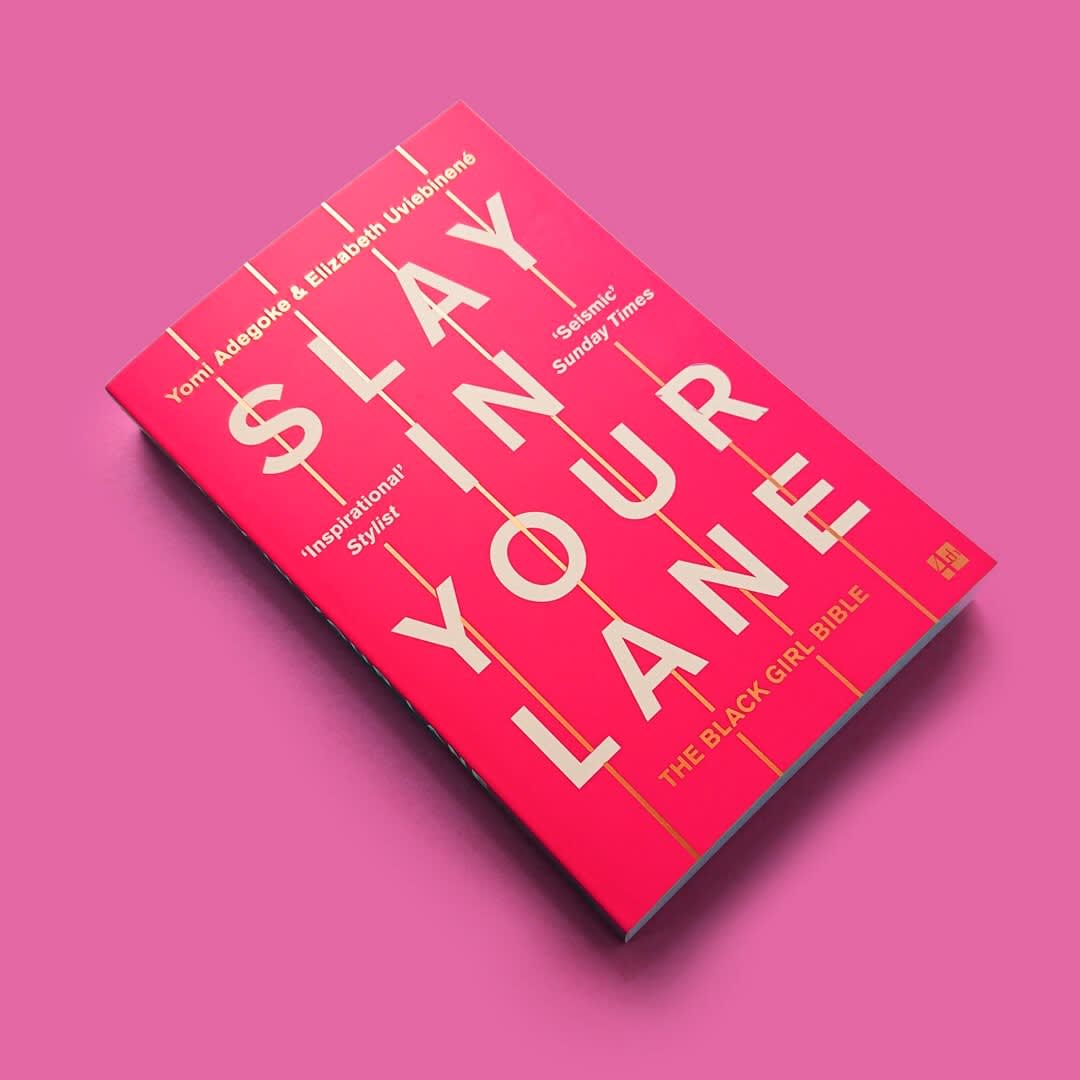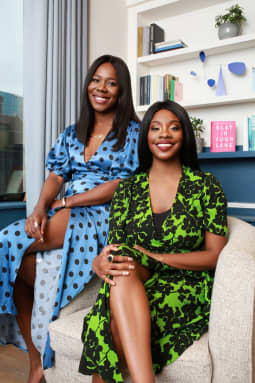The idea for Slay in Your Lane: The Black Girl Bible, a book full of advice for black women, came to Elizabeth Uviebinené “on a random lunchtime”. Just 22 at the time, she pitched it to her best friend and writer Yomi Adegoke, not intending on writing it with her. “I guess she pitched it back to me saying ‘yeah, this is not just a book, it’s going to be a culturally defining book and a movement.’ She suggested we do it together.” Four years on, the pair talk racism and unconscious bias ahead of Cheltenham Literary Festival.
Elizabeth Uviebinené’s parents “believed that education led to job opportunities […] they often steered us towards careers such as law and medicine – professions in which no one can deny your qualifications, regardless of the colour of your skin and the prejudice you might come across.” So write the marketing manager in the education chapter of Slay in Your Lane, shedding light on why immigrant parents can place such strong emphasis on their children’s schooling. “Wherever you’ve been,” she says reiterating the mentality, “this education is essentially your passport to a better future.” It puts pressure on “a lot of young black people to excel in education” even though their teachers may have lower expectations of them. “It’s a constant struggle growing up – that I experienced, anyway.”
In the book her writing partner presents myriad statistics and anecdotes in relation to black people and university: a Snapchat picture on a Facebook university community page of a black man in a net, captioned ‘I caught me a n*gger!’; that black students are over 50 percent more likely to drop out of uni than white and Asian students; a black first-year student at University of Warwick (where Elizabeth and Yomi met) finding her bananas marked with the words ‘n*gga’ and ‘monkey’; that a mere 0.5 percent of UK students at Russell Groups are from Black Caribbean backgrounds.
“In the black community,” she says, “especially within African communities, there’s a very big focus on education. People don’t realise that doesn’t necessarily translate to assimilation in higher education. We want to go to university and take advantage of the freedom and access that can bring, we put a lot of emphasis on it, but that doesn’t mean once you’ve passed your A-levels you’re going to get into the establishment you want – even when you receive the grades.” Data speaks of, she resumes, “Black and minority ethnic students receiving the same grades as their white counterparts and not necessarily being accepted into certain prestigious education establishments. There are also issues in terms of retainment; even once you do get into those spaces, do you feel accepted, like you fit in, like you want to stay there? The drop-out rates are very high for black students, especially in predominantly white institutions.”
There are universities where black students are overrepresented. Is that as much a cause for concern as underrepresentation? “Probably,” says the Guardian columnist, for this overrepresentation seems to take place in institutions held in lower regard than others – the stigma against polytechnics and lower-level universities “a cause for concern anyway”. It’s important, she says, to look into why “there are certain institutions that have higher levels of minority students, and other ones which have basically none. If lots of students are flocking to certain establishments because they feel that they aren’t welcome in others, that’s a push as opposed to a pull factor. You shouldn’t be going to a particular place because you think you won’t thrive elsewhere. It should be that you’re going because you want to and they’ve got the best reputation for the course you want to do. That doesn’t tend to be the case and we get highly densely populated universities with students following each other because they’re essentially nervous about being somewhere where people like them aren’t represented.”
We talk in the week England women’s manager Phil Neville has called for the football community to boycott social media following the online racist abuse of Paul Pogba and other players, in a bid to get social media companies to do something about it. It’s a move John Barnes said wouldn’t work. You might stop somebody expressing their racist thoughts online, he said, but that won’t eradicate the thoughts themselves – and that’s where the problem lies. “I think I agree with John Barnes, a little bit,” says Elizabeth, whose “first experience of white men being racially abusive was at a football game”. She understands “boycotting is a part of protest, but ignorance can only be defeated via proper education.”
We’re seeing blatant racism in football and society as a whole, but are there types so subtle that perpetrators don’t even realise they’re doing it? “Whether based on race, disability or sexuality,” says Yomi, “there are various forms of microaggression and stereotyping that people are not necessarily aware they partake in.” Just because it’s unconscious bias though, she says, doesn’t make it ok. With the internet it’s “very easy to listen to people from the communities in question” and become less ignorant. Asking a BAME person where they’re from, and then where they’re really from when they say Croydon, “isn’t something that immediately strikes everybody as racist, but it can become apparent why it is offensive quite quickly.”
While “written for black women first and foremost”, she says, Slay in Your Lane has helped white people address their unconscious biases, and “understand that there are all kinds of institutional, structural, day-to-day axes of oppression for black women in this country. It’s helped [them] understand how – even completely unintentionally – they may uphold that system.” Further, black men have learnt from The Black Girl Bible, about ways in which they support “systems of patriarchy or even anti-blackness”.
They’re guest curators at this year’s Cheltenham Literary Festival, staging three events, one focused on what’s it’s like to be a black woman in a mostly white space. For another they’ll be joined by vegan chef Rachel Ama and wellness coach Isa-Welly; a light lunch affair (with wine) called Eat Well, Live Well, which Yomi says is “probably one of the newest themes for us”. There is a health chapter in SIYL, she points out, but here the focus is more on wellness due to the book’s accompanying journal which came out last month. It explains “how to practically implement a lot of the advice in the book” and “is quite geared towards the wellness crowd and people very interested in digging a little bit deeper; trying to really work out who you are, why you want certain things, when you want to get there.”
Between 3-4pm on 5 October, they’ll speak about Slay in Your Lane with Tinea Taylor. It will open the conversation wider, Elizabeth explains, granting the “opportunity to have a little discussion with different types of people and swap stories”, which could stay in people’s hearts and minds longer than words on a page. When dealing with topics as sensitive as racism, “we can’t limit it to just a book or social media, it’s important to have this conversation wherever we can.”










